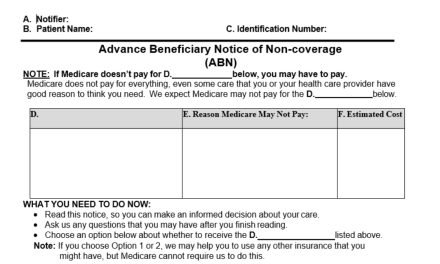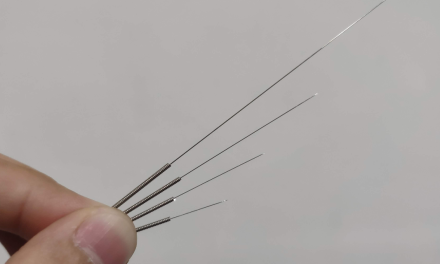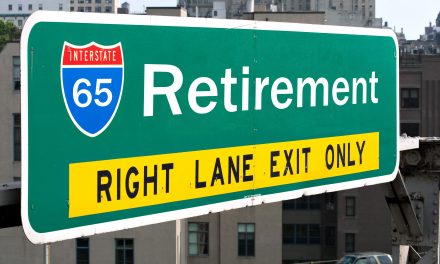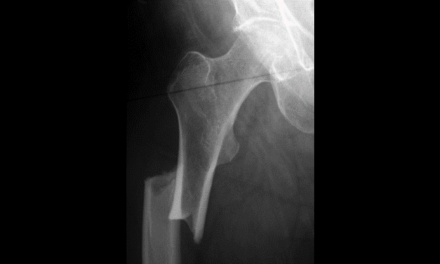
2018 Legislative Session Report

The 2018 Spring Legislative Session for the Illinois General Assembly adjourned on May 31, 2018. Over the course of the session, more than 1,500 Senate Bills and 1,900 House Bills were introduced. Throughout the legislative session, the ICS staff reviewed the legislation to address any concerns or impact to the chiropractic profession. Additionally, over the course of the session, the ICS Staff advocated on behalf of the chiropractic profession on several pieces of legislation.
Many bills passed the legislature and are now awaiting action from the Governor. Topics for this legislative session included medical payments for workers’ compensation claims; chiropractic physicians and concussion protocols; direct access for physical therapists; Lyme disease; and physician assistant independent practice authority.
At the end of the legislative session, a State budget was passed. These topics are explained in greater detail below.
ICS Legislative Initiatives
The ICS introduced three pieces of legislation over the course of this General Assembly. We introduced these bills to provide greater parity for our doctors and to further advance the profession.
- Non-Discrimination and Co-Payment Issues: Throughout this General Assembly, the ICS has initiated legislation seeking to prevent health plans from discriminating against providers and limiting co-payments the plans may apply. We continue to receive substantial opposition on these issues. However, we continue to speak with legislators on addressing these very important matters.
- Return to Play: Additionally, this year we have filed legislation to allow chiropractic physicians the authority to remove a student-athlete from play and return an athlete to play as part of concussion management. It is the stance of the ICS that chiropractic physicians are well-educated and trained to evaluate and determine recovery from concussions. Additionally, under the Medical Practice Act of 1987, these activities are well within the scope of practice for a chiropractic physician. Our bill to include chiropractic physicians was HB 4925 (Breen). Unfortunately, it was opposed by several other healthcare provider groups, as well as the Illinois High School Association. We continue to look for ways to advance this legislation.
Other Legislative Issues
While working to advance our own initiatives, the ICS also has supported, negotiated, and monitored several other pieces of legislation. Over the course of this General Assembly, the ICS tracked over 200 pieces of legislation. Some of the more significant bills are summarized below:
SB 904 (Hastings/Hoffman)-Workers’ Compensation Medical Payments:
The legislation was introduced late in the session to address the issue of medical payments and workers’ compensation claims. Many medical providers have had issues with workers’ compensation insurers failing to pay claims in a timely manner and failing to pay the interest accrued on the claim. Recently, a court case determined that medical providers did not have any standing in court to collect interest on past due claims, even though the law requires interest to accrue. This legislation, designed to remedy the court decision, was an initiative of the Illinois State Medical Society and was supported by several health care groups, including the ICS. We want to thank all of our members who responded to our Call To Action to help this measure pass during this legislative session.
The legislation makes the following three changes to the Illinois Workers’ Compensation Act:
- Adds a provision that requires the insurance company to give a health care provider an Explanation of Benefits when care is being denied. Also, the legislation requires the Medical Fee Advisory committee to establish rules that would detail the requirements of the Explanation of Benefits.
- It provides an avenue for medical professionals to use the court system to enforce interest payments from insurance companies on future medical workers’ compensation claims that are paid late. Remedies a recent court case that held that medical professionals are unable to take legal action to enforce interest payment that is owed to them by insurance companies.
- It requires insurance companies to comply with the current electronic billing requirements.
The legislation passed the House with a vote of 115-11-0 and the Senate with a vote of 38-7-4 and now awaits action from the Governor.
HB 4643 (Burke, D./Mulroe)-Physical Therapists and Direct Access:
During this legislative session, physical therapists introduced legislation to obtain direct access to patients. Initially, the legislation would have allowed a physical therapist the ability to treat and diagnose patients without a physician referral. The legislation was opposed by several healthcare groups, including the ICS. The bill was then amended to remove diagnosis from the physical therapist scope. Even after diagnosis was removed, the ICS continued to advocate for additional patient protections. After some very difficult negotiations, the ICS was successful in these efforts.
The legislation now allows for a physical therapist to see a patient without a referral only if the following conditions are met:
- Physical Therapists are not authorized to diagnose;
- Physical Therapists are required to notify the patient’s health care professional within 5 business days of when the patient is treated;
- Physical Therapists are required to refer a patient to a health care professional (including chiropractic physicians) if:
- The patient does not demonstrate measurable or functional improvement after 10 visits or 15 business days, whichever occurs first; or continued improvement thereafter, or
- A patient who returns for services for the same or similar condition after 30 calendar days of being discharged by the physical therapists; or
- A patient whose condition should, at the time of evaluation services, be determined beyond the scope of practice of the physical therapists.
- A written authorization from a physician is required for a physical therapist to perform wound debridement;
- A physical therapist must promptly consult and collaborate with the appropriate health care professional anytime a patient’s condition indicates that it may be related to the temporomandibular disorder, so that a diagnosis can be made by that health care professional for an appropriate treatment plan.
To read a full write-up on our efforts on this issue, please refer to the ICS Article Physical Therapists and Direct Access to Patients in Illinois.
The legislation passed the House unanimously and the Senate with a vote of 54-0-1. HB 4643 awaits action from the Governor.
HB 4100 (Kofowit/Castro)-Nurses Violence Prevention:
The legislation was introduced and heavily negotiated to address the issue of workplace violence committed against nurses. The legislation requires certain health care facilities to establish workplace violence programs. Additionally, the legislation provides for whistleblower protections and outlines protocols for violence prevention when treatment is provided to committed individuals. Physician offices are excluded from this legislation. HB 4100 passed both chambers unanimously and awaits action from the Governor.
HB 4226 (Kifowit/Raoul)-Schools and Concussion Protocols:
This bill requires the Illinois Department of Public Health to educate the public on the effects of concussions in children and the warning signs of a concussion. The legislation also requires that brochures are provided free of charge to parents of children who may have sustained a concussion during interscholastic play. HB 4226 passed both chambers unanimously and awaits action from the Governor.
HB 4515 (Swanson/Nybo) -Lyme Disease:
This is an initiative of a group of patients who have had difficulty finding doctors in Illinois willing to treat their chronic Lyme disease cases. The advocates argued that the doctors in Illinois will not treat them for Lyme disease out of fear of being disciplined by IDFPR. The legislation provides that a physician licensed under the Medical Practice Act cannot be disciplined by IDFPR for using experimental treatment for Lyme disease or other tick-borne diseases. Also, a task force was created to examine the treatment protocols of Lyme disease in Illinois. HB 4515 passed the House on a vote of 103-2-1 and the Senate unanimously. HB 4515 awaits action by the Governor.
HB 4572 (Guzzardi/Castro)-Human Rights Employer Definition:
Currently, the definition of “employer” subject to the Illinois Human Rights Act only applies to employers who employ 15 or more employees during 20 or more calendar weeks in a given year in Illinois. HB 4572 changes the threshold to apply to an employer that has a minimum of one employee. This legislation was heavily opposed by business groups. HB 4572 passed the House with a vote of 64-37-0 and the Senate with a vote of 33-13-0. HB 4572 awaits action by the Governor. If this legislation becomes law, we will have a more extensive article explaining the changes to our doctors.
HB 4795 (Demmer/Syverson)- Substance Abuse Disorder Act:
This legislation rewrites the Alcoholism and Other Drug Abuse Dependency Act. The bill makes several updates to the statute regarding treatment protocols, licensure requirements, and reference to evidence-based practices. This is an initiative of the Illinois Department of Human Services. HB 4795 passed both chambers unanimously and awaits action by the Governor.
HB 4820 (Fine) -Insurance and CPT® Codes:
HB 4820 would have prohibited an insurance company from rejecting a CPT® code without clear explanations for the reason of denial. This legislation is the initiative of the Illinois State Medical Society and was in response to a current issue involving mass claim denials by insurance companies. The ICS supported this legislation. The legislation was assigned to the House Insurance: Health & Life Committee but not called for a vote.
HB 4848 (Swanson/Althoff)-Veterans Medical Records:
The legislation requires health care providers to provide one complete copy of a patient’s records free of charge if the patient is an indigent homeless veteran or the records are being requested by a veteran or his or her legal representative to support a claim while applying for veteran’s disability benefits. HB 4848 passed the House and the Senate unanimously and awaits action from the Governor.
HB 4953 (McAuliffe) -Sexual Harassment Training:
For individuals who are required to take continuing education for a license under IDFPR, at least one hour must include sexual harassment prevention training for license renewals that occur on or after January 1, 2020. HB 4953 passed both chambers unanimously and awaits action by the Governor.
HB 5070 (Bellock)-Telehealth:
Expands the definition of “health care professional” under the telehealth law to include dentists, occupational therapists, pharmacists, physical therapists, clinical social workers, speech-language pathologists, audiologists, and hearing instrument dispensers. Due to the efforts of the ICS, chiropractic physicians were included under the telehealth law during the last legislative session when it was written. HB 5070 passed the House with a vote of 111-1-0 and passed the Senate unanimously. This legislation awaits action by the Governor.
SB 2285 (Aquino/Hernandez)-Disability Decal:
This legislation allows the Secretary of State to issue a one-time decal or device to any non-resident of this state who has a disability and is displaced from another location due to a natural disaster. The legislation outlines the items the Secretary of State may require for proof of the disability. Among those items listed is a medical certificate by an Illinois licensed physician, which includes chiropractic physicians. SB 2285 passed both chambers unanimously and awaits action by the Governor.
SB 2332–(Morrison/Lilly)-Tobacco Under 21:
SB 2332 provides that it is illegal to sell tobacco products, electronic cigarettes, and alternative nicotine products to anyone under the age of 21. The legislation passed the Senate with a vote of 35-20-0 and the House with a vote of 61-49-0. SB 2332 now awaits action from the Governor.
SB 2777 (Althoff/Bellock)-Prescribers Continuing Education:
IDFPR passed legislation that would require individuals licensed under the Illinois Controlled Substances Act to take at least 3 hours of continuing education in safe prescribing as part of their renewal for a professional license. SB 2777 passed both chambers unanimously and awaits action from the Governor.
SB 2904–(Steans/Feigentholtz)-Physician Assistant Independent Authority:
The legislation was introduced to eliminate physician and physician assistant ratio requirements. After negotiations, the legislation resulted in an expansion of the number of physician assistants that can collaborate with a physician from 5 to 7. However, the legislation allows for a physician to collaborate with more than 7 physician assistants in the cases where the federal primary health professional shortage area has a Health Professional Shortage Area score is greater than 12. SB 2904 passed both chambers unanimously and now awaits action from the Governor.
SB 3397(Althoff)-Athletic Trainer License Repeal:
This legislation repeals the license for Athletic Trainers and inserts provisions into the concussion law that would still provide them the ability to certify to return to play. This is an initiative of IDFPR. This legislation was opposed by several health care groups including the ICS and the Illinois Athletic Trainers Association. SB 3397 was assigned to the Senate Licensed Activities and Pensions Committee but was not called for a vote.
SB 3018 (Jones)-Medical License Number:
SB 3018 would have prohibited IDFPR from disclosing a medical license number of a physician licensed under the Medical Practice Act. This is an initiative of the Illinois State Medical Society. SB 3018 was assigned to the Senate Licensed Activities and Pensions Committee but was not called for a vote.
SB 3395 (Althoff/Demmer)-PT Endorsement:
Allows for IDFPR to issue a license to an occupational therapist, occupational therapy assistant, physical therapist, or physical therapy assistant who has practiced in another jurisdiction for 10 years, provided the individual meets the requirements to be determined by the Department. SB 3395 passed both chambers unanimously and awaits action by the Governor.
Illinois Budget Passed
In the final days of the legislative session, the legislature was able to pass a state budget for the FY 2019 fiscal year. The good news for our doctors is that the State of Illinois Employee Group Insurance Program was fully funded in the budget. The Governor signed the budget and it will be effective July 1, 2019.
Unfortunately, the budget did not address the backlog of bills that the State needs to pay. The backlog of bills will continue to be an issue.
The legislature is not scheduled to return to Springfield until November 13, 2018. Even though the legislative session has adjourned from Springfield, ICS’ work never stops. As always, we will continue to advocate on behalf of the chiropractic profession and the patients it serves.



















